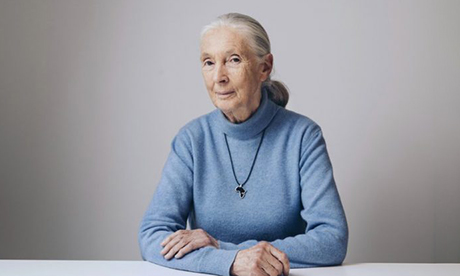World-renowned anthropologist Jane Goodall says Pope Francis stand on the environment gives her a reason for hope for the future.
Goodall has added her voice to the Vatican’s in calling for the defence of biodiversity. She has seen hopeful trends in the global fight to protect the environment, one of which is Pope Francis.
“One of my reasons for hope is Pope Francis,” the Englishwoman said. Because, in his position as pope, “with the whole of the Catholic Church around the world, his stand on the environment really has made a big difference.”
“The other reason for hope is that the other religions too are beginning to talk about the environment more and more,” she said.
“So, this really is one of the big hopes for our future. That, and more scientists are coming together to agree that there is intelligence, with a capital ‘I,’ behind the creation of the universe,” she said.
Founder and doctor at The Jane Goodall Institute, she first rose to fame for her groundbreaking research in the world of chimpanzees. She travelled to Tanzania in 1960 at the age of 26 to live amongst them and learn about the species up close.
Goodall spoke as part of a webinar on biological diversity titled, “The Road to COP15,” which is a major UN-level conference on biodiversity scheduled to take place Oct. 11-24 in Kunming, China.
The webinar was organized by the Vatican’s department for Promoting Integral Human Development, which is led by Ghanaian Cardinal Peter Turkson, who also spoke at the event.
In her remarks during the webinar, Goodall said she learned many things about the similarities between humans and chimpanzees while conducting her field research, but one thing she also learned is that “we’re different.”
“Yes, they are animals that are way more intelligent than people used to think, but we designed a rocket that went up to Mars,” she said. And yet, “We don’t want to go and live on Mars.”
“At one point, it was thought that it might support life, but we’ve got this one, beautiful, green and blue planet, Planet Earth, created by God,” she said. “How is it possible that the most intellectual creature to ever walk on this planet is destroying its only home?” she asked.
Speaking of the coronavirus pandemic and the global damage it has wrought, Goodall argued that as a human community, “we’ve brought it in large part on ourselves.”
The reasons for this, she said, are “our absolute disrespect of animals and our disrespect of the natural world.”
In his remarks, Turkson echoed Goodall’s statement that human behaviour is at least partly responsible for the onset of pandemics.
“Human beings must respect the laws of nature and the delicate equilibrium existing between creatures and the world itself,” he said, saying this is also related to Catholic Church teaching “about resting on the seventh day, which is for human beings also to preserve creation.”
Sources
Additional readingNews category: World.




